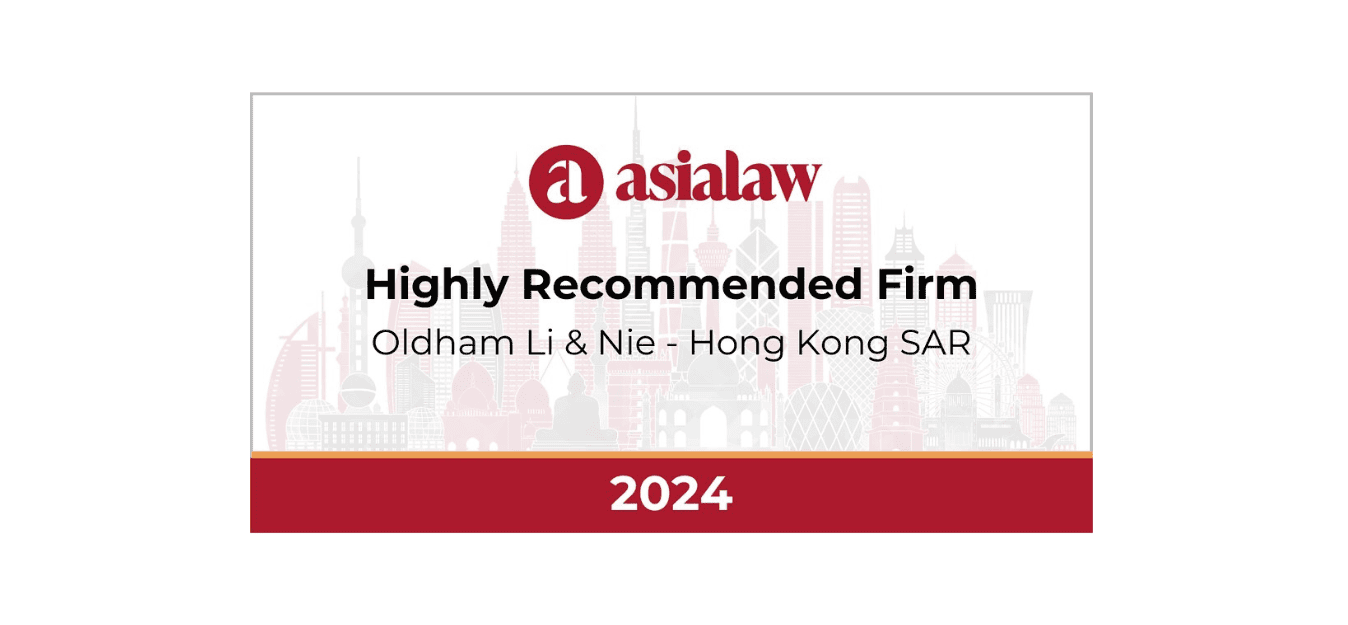We are pleased to announce that Oldham, Li & Nie has been again ‘Highly recommended’ by asialaw.
asialaw have ranked Oldham, Li & Nie for the following practice areas:
- Dispute Resolution – Highly recommended
- Intellectual Property – Highly Recommended
- Corporate and M&A – Recommended
- Labour & Employment – Recommended
- Private Client – Notable
- Restructuring and Insolvency – Notable
Additionally, Oldham, Li & Nie has been recommended in the following industry sectors:
- Insurance – Recommended
- Technology and Telecommunications – Recommended

Oldham, Li & Nie’s partners have also received 5 recognitions in their respective practice areas:
- Gordon Oldham is recognised as a Senior Statesman in Dispute Resolution
- Richard Healy is recognised as a Notable Practitioner in Dispute Resolution
- Tracy Yip is recognised as a Distinguished Practitioner in Corporate and M&A
- Vera Sung is recognised as a Distinguished Practitioner in Intellectual Property
- Anna Chan is recognised as a Rising Star in Tax and Private Client
For more information and detailed analysis, please visit Oldham, Li & Nie’s profile on asialaw: https://www.asialaw.com/Firm/oldham-li-nie-hong-kong-sar/Profile/1112#profile
OLN has also been shortlisted in two categories for asialaw awards 2024:
- Oldham, Li & Nie – Hong Kong Law Firm of the Year
- Anna Chan – Hong Kong Female Lawyer of the Year
About asialaw
asialaw is the only legal directory featuring comprehensive analysis on Asia’s regional and domestic firms, and leading lawyers from the region.
In addition to the asialaw rankings guide, the directory publishes awards shortlists and winners recognising the best firms in Asia.
More information about asialaw, please visit https://www.asialaw.com/
 香港中環雪厰街二號聖佐治大廈五樓503室
香港中環雪厰街二號聖佐治大廈五樓503室 +852 2868 0696
+852 2868 0696







